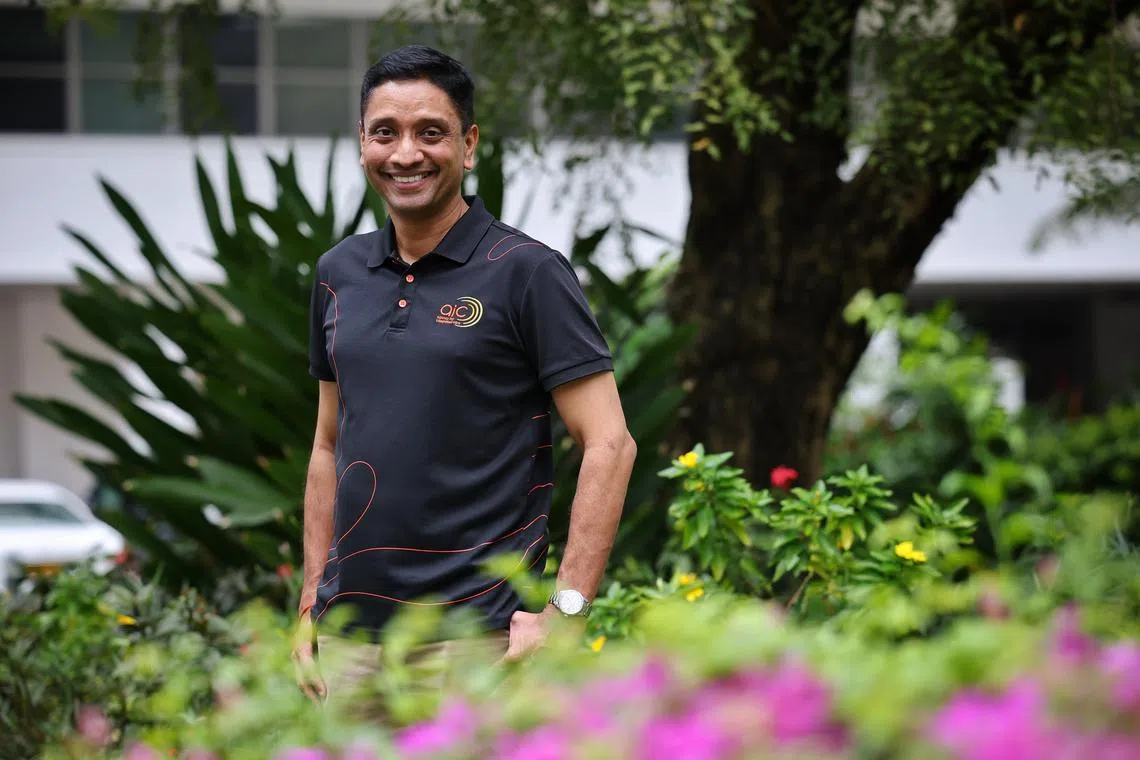- Joined
- Jul 25, 2008
- Messages
- 13,394
- Points
- 113
GE2025: Military officers bring leadership to political arena but have to learn ground dynamics, say analysts
There have been historically close links between Singapore’s military and its ruling party, with senior officers continuing to serve in public life after retiring, said experts.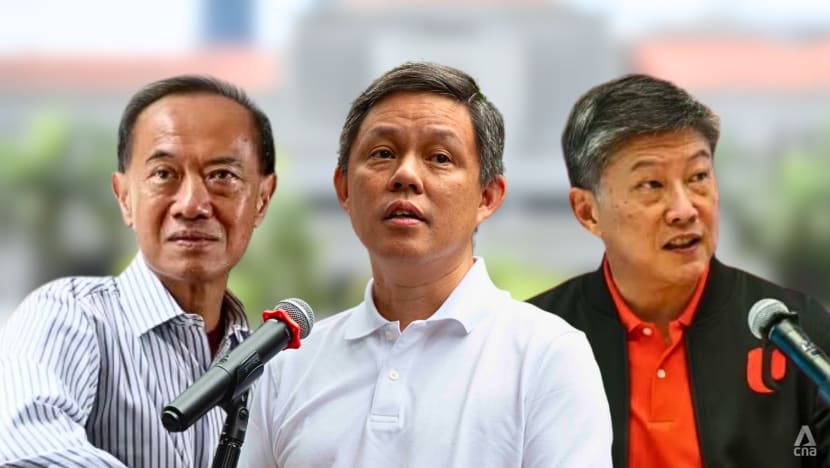
Fabian Koh
26 Mar 2025SINGAPORE: Earlier in March, Singapore’s Chief of Army handed over command to his successor.
It’s a routine move that takes place every few years – except the timing has fuelled murmurings that Major-General David Neo could resign from service, enter politics and contest the imminent General Election (GE2025).
Back when the change was announced in late February, the defence ministry said MG Neo would remain in MINDEF “to complete transition and other administrative matters”. CNA has contacted him for comment.
He would not be the first senior military officer to walk that path, with the ruling People’s Action Party (PAP) in particular having long sourced political talent from the Singapore Armed Forces (SAF).
At the last election in 2020, former brigadier-generals Gan Siow Huang and Desmond Tan were fielded as PAP candidates, and have since become political office holders.
Labour chief and former minister Ng Chee Meng’s Sengkang GRC team lost to the Workers’ Party at that same polls. Five years prior, Mr Ng had resigned as Chief of Defence Force to contest GE2015, and won as part of the PAP's Pasir Ris-Punggol team.
He was spotted at a community event in the new Jalan Kayu SMC on Mar 16, as well as the week before at a Meet-The-People Session also in the area – leading to speculation he could run for the single-seat ward in elections expected to take place in the coming months.
Former military officers-turned-lawmakers told CNA that attributes picked up from soldiering, such as leadership, adaptability and the ability to operate under pressure, served them well in the political arena.
Yet observers noted that such individuals have also had to acclimatise to the less hierarchical setting of civilian life, while quickly getting to grips with parliamentary processes, grassroots structures and being in touch with the ground.
THE MILITARY AND THE STATE
Former minister and brigadier-general George Yeo told CNA that in Singapore, defence remains “inseparable” from statehood and independence – a dynamic unchanged since the 1990s. The SAF and National Service (NS) are thus core institutions of the country.Observers noted the historically close links between Singapore’s military and its ruling party.
“The first generation of leaders like Lee Kuan Yew and Goh Keng Swee started governing Singapore at a time when coups were very rampant in post-colonial societies in Southeast Asia, Latin America and Africa,” said Dr Terence Lee, senior fellow at the S Rajaratnam School of International Studies (RSIS) think-tank.
To ensure stable civil-military relations in newly independent Singapore, the leadership made sure there was civilian control over the military, by not making the armed forces an organisation isolated from the wider population.
“In certain countries, the armed forces see themselves as separate and different from society,” said Dr Lee, who specialises in the study of civil-military relations.
For instance, officers in the United States, Thailand, Philippines and Indonesia train at specialised, degree-granting institutions devoted to inculcating a strong military ethos and a deep sense of esprit de corps.
In Singapore, however, men and women training to be officers also pick up professional and technical expertise on top of soldiering skills.
And after retiring from the SAF, it is “common” for them to continue serving in public life, said Dr Lee.
National University of Singapore associate professor of political science Bilveer Singh said the transition from senior military officer to politics has been “viable and encouraged” since the 1980s.
He cited early examples such as current Senior Ministers Lee Hsien Loong and Teo Chee Hean as well as Mr Yeo, who were all given scholarships by the SAF.
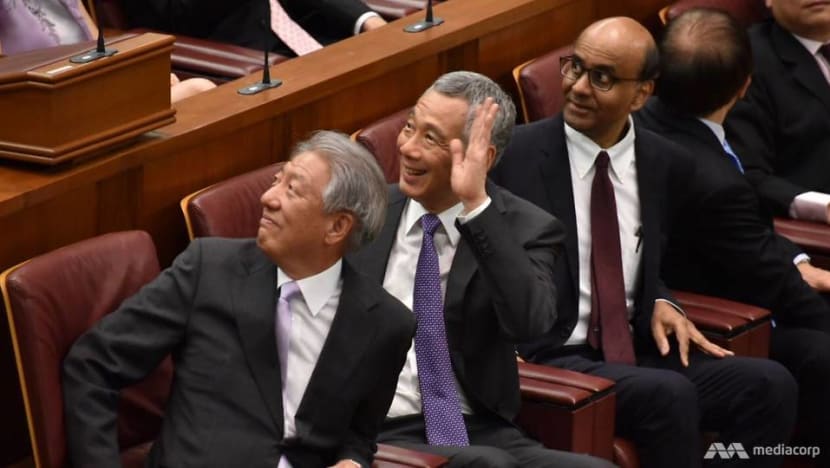
The latter wrote in his biography that SAF scholarships were not just an “HR (human resource) scheme to recruit talent” but an integral part of state formation in Singapore.
“The meritocracy was proven in their pathway to the scholarship. The notion was that because of merit, these guys are among the creme de la creme of society,” said Assoc Prof Singh.
“And in the Singapore context, being a small place, it doesn't mean that once you’re in the military, you’re forever in the military. You can be deployed for the greater good of society, which means in politics and the civil service.”
Ex-military officers in parliament
SM Lee was a former brigadier-general who left the army for politics in 1984. In late 1990, he became deputy prime minister, and in 2004 he took over as Singapore’s third prime minister. He stepped down last year after 20 years at the helm.SM Teo was a former two-star rear-admiral and Chief of Navy, before joining politics in 1992. By 1995, he was a political office holder; and became a full minister the next year. He is currently also Coordinating Minister for National Security.
Former major-general and Chief of Army Chan Chun Sing resigned from the military and entered politics in 2011. He was made Acting Minister for Community Development, Youth and Sports immediately after the polls that year. By September 2013, he was a full minister.
Other current political office holders include Singapore’s first female general Gan Siow Huang, who was a brigadier-general in the air force until her political debut in 2020. She was made minister of state after that election.
Another former brigadier-general is Senior Minister of State Desmond Tan. He left the SAF after 28 years, becoming chief executive director of the People’s Association from 2017 to 2020, before entering politics. He was made a Minister of State after the election, and promoted in May last year.
Prominent names in the past include Mr Yeo who entered politics in 1988 after resigning as brigadier-general in the military. He went on to helm various ministries including health, trade and industry and foreign affairs, before exiting politics in 2011 after his team lost in Aljunied GRC.
Ambassador to the United States Lui Tuck Yew is also a former two-star rear-admiral and Chief of Navy who was a full minister from 2010 to 2015 before he stepped down from politics.
Then there’s former parliament Speaker Tan Chuan-Jin, an army brigadier-general before joining politics in 2011. He was a full minister from 2014 to 2017, before becoming Speaker. He resigned in 2023 over an extramarital affair.
Apart from the highest echelons of the military, there have been several senior officers who also made the transition to politics.
Former fighter pilot Shawn Huang spent 19 years in the air force and rose to lieutenant-colonel, before leaving for Temasek International ahead of the 2020 polls. In May last year, he was appointed Senior Parliamentary Secretary.
Among the current backbenchers, South East District Mayor Mohd Fahmi Aliman was an army colonel who served in the SAF for 26 years. He left in 2019, joining the Islamic Religious Council of Singapore (MUIS) and then the National Trades Union Congress, before contesting the 2020 general election.
Expand
“READILY TRANSFERABLE” SKILLS
Moving from the military domain to that of civilian politics is not unique to Singapore.The US, like Singapore, is replete with contemporary and historical examples, said RSIS’ Dr Lee. For instance, military four-star generals James Mattis and Llyod Austin both retired and went on to serve as Secretary of Defence under Presidents Donald Trump and Joe Biden respectively.
Observers who spoke to CNA said there was strong consensus among HR practitioners and academics that retired military officers have unique skill sets.
This includes experience leading large and complex organisations; knowing how to motivate and unify others towards common goals; fostering camaraderie and working across different teams.
On a more operational level, their military background also lends to capabilities spanning strategic planning, thinking and analysis; making critical decisions quickly and effectively under pressure; and adapting to changing environments.
Discipline and ethical behaviour instilled by the military are also attributes “readily transferable to the civilian world”, said Dr Lee.
He added that senior officers are also familiar with the public policy process, by virtue of close interactions with political leaders like the defence minister and senior civil servants such as permanent secretaries.
Assoc Prof Singh said senior military officers possess a different level of understanding of Singapore’s strategic needs, compared to say the average civilian who has undergone NS.
“Everything is a security issue in Singapore, and the best people to understand, encapsulate and operationalise it are the generals,” he said.
NTUC LearningHub chairman Lim Swee Say, who was also an SAF overseas scholar, told CNA his time in the military was valuable.
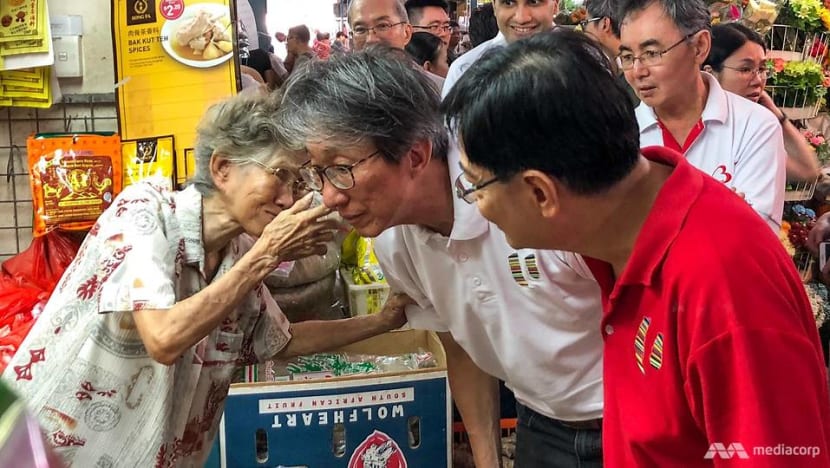
The former manpower minister and labour chief last held the rank of major and headed a department developing computerised information systems for military operations.
He left for the National Computer Board and then the Economic Development Board, before entering politics in 1997. He became a full minister in 2001, up till 2020 when he retired.
“Leadership is about setting goals, formulating strategies, guiding and motivating everyone in the team, and aligning collective efforts of all to jointly achieve our shared outcomes,” he said. “Many of the soft skills and hard know-how are common, relevant and applicable to both military and civilian settings.”
“NO GUARANTEE” OF SUCCESS
Yet having a military CV can come with potential pitfalls as well, observers noted.“The civilian world is more collaborative and less hierarchical,” said Dr Lee. “An authoritative leadership style developed in the military may clash with the expectations of teamwork and individual empowerment in civilian settings.”
Assoc Prof Singh also pointed to the learning curve involved in becoming a lawmaker in Singapore, be it grassroots familiarity, parliamentary processes or international relations and beyond.
“It does not mean because you're a military general, that you will become a political general tomorrow,” he said. “No guarantee.”
How well former military officers adapt would depend on how open-minded they are; whether they’re prepared to put aside any pride; and how well they accept the constant spotlight.
“The shift is more difficult nowadays because of social media and because of the transparency,” said Assoc Prof Singh. “Don't forget the army life is still very private, but the political life is 101 per cent public.”
In terms of appealing to voters, their military affiliation is less important than their actions and behaviour on the ground, said the political scientist.
“The senior military officers’ personality and temperament, along with the public belief in their sincerity to serve constituents, will be the key factor.”
Softer aspects such as emotional intelligence will also matter in trying to leave an impression, especially for a younger electorate interested and invested in a greater myriad of issues, Assoc Prof Singh added.
Former minister Yeo told CNA that it was a years-long effort for him to understand more about the lives and hopes and fears of Singaporeans from different backgrounds.
“It is necessary to be familiar with social and political structures, but that is not enough,” he said. “In politics, one needs to empathise with all segments of society … That learning requires not only an active mind but a willing heart.”
JOINING THE OPPOSITION
Outside of the ruling party, Singapore’s opposition has never had Members of Parliament of high-ranking military background.Former air force lieutenant-colonel Francis Yuen is perhaps most notable for becoming secretary-general of the Progress Singapore Party (PSP) between 2021 and 2023, succeeding party founder and former PAP MP Tan Cheng Bock.
He contested the 2020 GE, as did another former lieutenant-colonel in the PSP's ranks: Nadarajah Loganathan, who exited the party’s highest decision-making body after its latest election on Mar 20.
Also not re-elected to PSP's central executive committee was former assistant secretary-general and former SAF colonel Ang Yong Guan, who had contested the last three polls under the banners of the Singapore Democratic Party, SingFirst and PSP respectively.
The PSP also counts former brigadier-general Lee Hsien Yang, son of Singapore’s founding prime minister, as a member. He joined the party in June 2020, ahead of the general election that year, though he did not eventually stand in the contest.
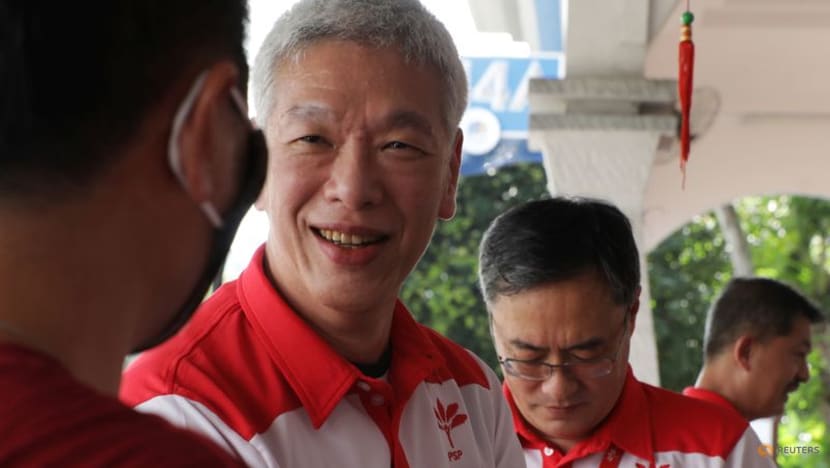
Associate Professor Tan Ern Ser, an adjunct principal research fellow with the Institute of Policy Studies, said having some former senior military officers join the opposition suggests “a plurality of political ideology” in the ranks.
Still, they remain a distinct minority.
Military officers would view entering politics as “an extension of their calling and duty to the nation, because of the ethos of service imbued in them through their career”, said RSIS senior fellow Alan Chong.
In that vein, “joining the ruling party brings a better chance of making it into Cabinet and being able to shape policies directly", he added.
"Being in the opposition is not consistent with this framework, at least currently."
FINDING A DEFENCE MINISTER
In Singapore’s history, only one former military officer has ever gone on to become a full defence minister: SM Teo, who held the portfolio from 2003 to 2011.Mr Yeo did write in his biography, however, that founding Prime Minister Lee Kuan Yew had suggested he take up the defence portfolio. But he turned it down, citing how he had already spent many years in defence and thought he could learn much more in other ministries. He told CNA he was interested in the finance and foreign affairs portfolios instead.
Since 2011, Dr Ng Eng Hen, a former oncologist, has been Singapore’s defence minister.
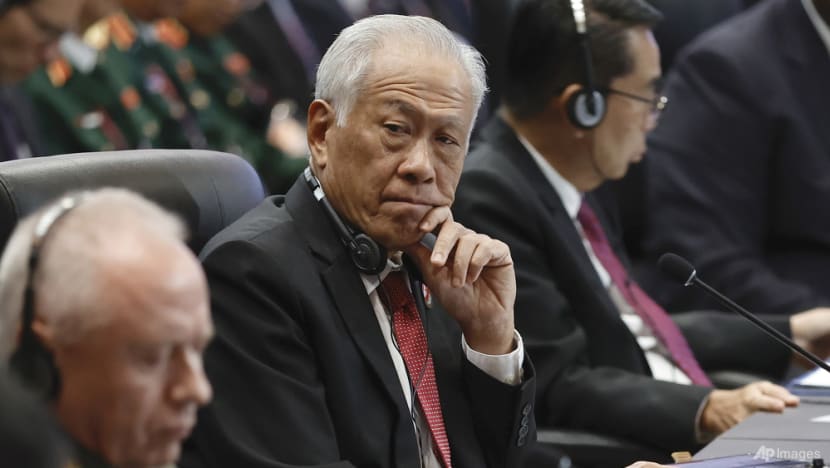
Observers noted a lack of a clear understudy or successor to Dr Ng, who turns 66 this year.
Current Education Minister and former Chief of Army Chan Chun Sing was appointed Second Minister for Defence in 2013. He relinquished it in 2015.
The Second Minister role then briefly went to Mr Lui during his stint in the Cabinet.
RSIS' Dr Chong argued that specific military expertise was not a requirement for the role
“When it comes to the training and doctrinal side, you always have on hand advice from your sitting generals and admirals, so the defence minister is not at a loss of expertise,” he said.
But Dr Mustafa Izzuddin, a senior international affairs analyst with Solaris Strategies Singapore, maintained that a former general would be a fitting candidate with their knowledge of defence and security matters, coupled with regimental leadership experience.
Assoc Prof Tan said that apart from being tuned to the SAF's capabilities, the defence minister needs to be well-versed in geopolitics and cultural sensitivities.
Asked who could take over from the current defence minister, Assoc Prof Singh pointed to Education Minister Chan or labour chief Ng – provided the latter returns to contest in this year’s election, and wins.
The academic noted that it would simply be beneficial to have someone already familiar with the ins and outs of the defence portfolio to step up and take it on.
“If you make someone with a non-military background the defence minister, he will have to learn the ropes all over again,” he said.


















